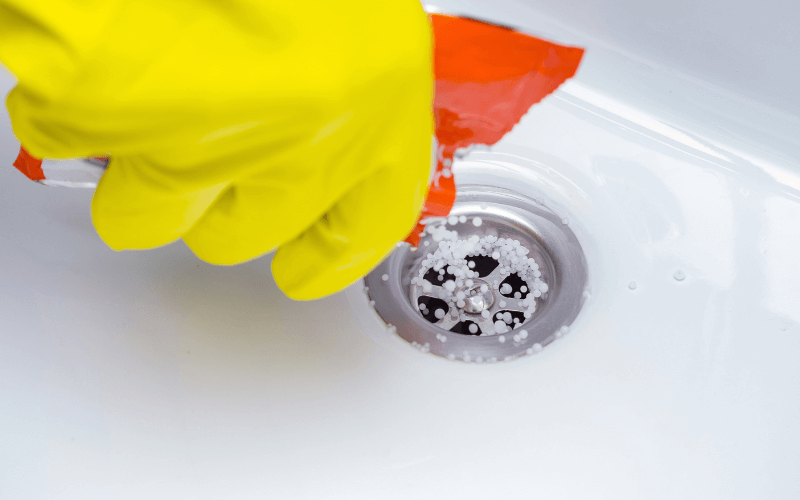Temperatures are beginning to climb as the UK heads towards summer, and at the time of writing the first heatwave of 2025 is imminent, according to Somerset Live. So now is the ideal time to familiarise yourself with how hot, dry weather can affect your drains – and what you can do over the coming weeks to protect them.
A recent survey by market research firm Ipsos found summer is the most popular season, with 42% of respondents naming it as their favourite. Asking Mega-Rod to perform drain maintenance at your home/business in the run-up to summer (which begins on 21 June) will help to ensure drainage issues don’t derail your plans for fun in the sun in Bath, Bristol and beyond.
After all, when the mercury is rising and rain is in short supply, neglected drainage systems can experience everything from rapid bacteria growth to collapsed drains, as we’ll explain.
‘Hot weather encourages far greater household water use,’ the Climate Change Committee points out. People tend to shower, bathe and wash clothes more often in the summer due to all the trips to the beach, exhilarating hikes, games in the park and other fun activities.
This means your drains are under tremendous pressure on summery days. They’re carrying more wastewater to the sewers than earlier in the year. Plus, they’re more likely to get congested or blocked by soap scum, hair, sand, dirt, grit, wet wipes and other rogue material.
Structural issues such as cracks may be exacerbated when large volumes of wastewater speed through drains or obstructions lead to pressure building up in the pipework.
If you allow food debris to disappear down plugholes, you may soon find your property is less than inviting.
While it may be tempting to pour leftover oily salad dressings, dips, BBQ sauce, grease from cooking hot dogs, melted ice cream and other remnants of summer dishes down the kitchen sink, they can easily create nasty problems in your drainage system.
Anything greasy or gloopy can stick to drain walls, restricting the flow of wastewater. Plus, heat accelerates the decay of food waste and also bacteria growth, leading to putrid odours from plugholes that are even worse than the smells emanating from bins in the heat.
Your drains are vulnerable to thermal pipe expansion in high temperatures. Heat gives molecules more energy, so they move around more. This can put drain walls, joints and seals under strain, especially if drain maintenance has been neglected. The pipework may bow, crack, leak, buckle or burst. Collapsed drains can also be the result of thermal expansion.
Drains that have expanded are likely to contract rapidly when temperatures cool (at night, say), which can also be extremely destructive.
In hot, dry weather, the soil around your drains may lose too much moisture. It could shrink significantly, ending up cracked and unstable.
Dried-out earth is prone to shifting and sinking, especially if it’s rich in clay. ‘Dry weather and high temperatures have been found to be a major factor in the emergence of subsidence in clay soils,’ remarks the British Geological Survey. If the soil gives way, your drains could collapse – or at the very least become misaligned, cracked and leaky. In addition, subsidence could dramatically destabilise your property’s foundations.
Wastewater escaping into bone-dry ground from a damaged drainage system can lead to earth being washed away or sinking even further.
If wastewater seeps – or pours – out of your drains due to structural issues, it could make them a target for thirsty root networks. As tree care firm Davey explains, ‘tree roots grow the most in late spring through very early summer’.
Even a tiny crack acts as an open invitation to invasive roots. They grow quickly and can therefore block drains before summer ends.
Thankfully, there are ways to help your drains withstand hot, dry weather:
Don’t let hot, dry weather damage your drains – call Mega-Rod in Bath today on 01225 422980 for expert help.









